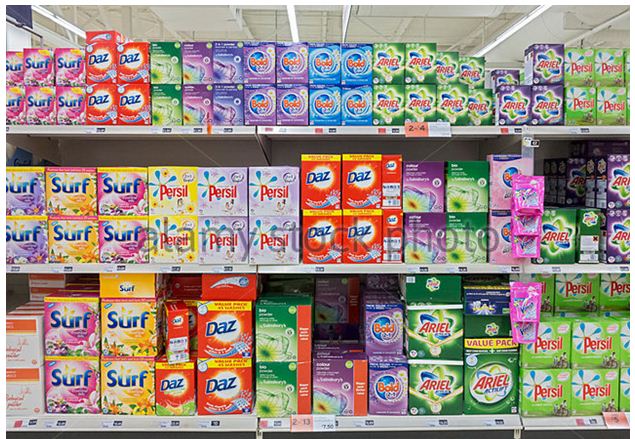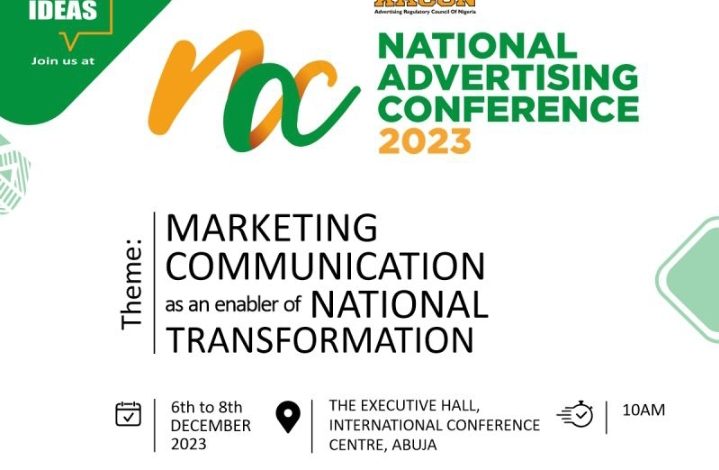By Felicia Nwosu
Nigeria is classified as one of the countries that create enabling environments for businesses, which is why many industries are springing up to meet the demands of the teeming population with various consumer goods especially in the detergent segment of the market.
Before now, a few detergent brands such as Omo from the stable of Unilever, Elephant Blue from PZ Cussons and Ariel from Procter & Gamble had dominant shelf presence. In recent times, however, the detergent segment has taken a new turn as more and more players emerge to take their fair share of the market.
Since 1962, Omo’s innovation has kept it relevant as one of Nigeria’s favourite washing detergent brands with the requisite marketing communications strategy and constant brand fortification and renewal for growth. Omo has built a solid space in the laundry detergent market through innovative product differentiation as well as gained acceptance among individuals and families across different socio-economic class. Unfortunately, Elephant Blue detergent could not survive the stiff competition.
In 1995, So Klin was introduced in economy packs by Eko Supreme Resources Ltd with the strategic intent of making it affordable for low income earners among detergent users in Nigeria.
Procter & Gamble’s Ariel appeared on the detergent scene in 1998 with strong competition for Omo as the number one laundry detergent then. It came with its Ariel’s “ONE WASH” promise and without delay began to eat a sizable chunk of the market. With local production of Ariel kicking off in 2006, it became clear that there was a huge market opportunity for the product in Nigeria’s laundry detergent market. Thereafter, Unilever also introduced Sunlight detergent into the Nigerian market.
There are a whole lot of brands in the detergent sub-segment such as Good Mama, Flash, Bimbo, Waw, Jumbo, Jet etc., but the stiff competition among key players has been attributed to the aggressive marketing strategy they employ. Though most of the indigenous manufacturers either do not have the financial resources to compete with the bigger brands in marketing or do not place as much importance on marketing as these big brands do, the choice of detergent brand is influenced not only by price, but by factors such as perceived effectiveness, popularity and unique product features and location.
The laundry detergent sub-segment of Nigeria’s Fast Moving Consumer Goods (FMCG) is still evolving as technological innovation is continually being infused into production. According to the statistics made available by Euromonitor International, there is an estimated growth in Nigeria’s laundry detergent market of about N265bn. Another report from Foraminifera Market Research shows that Nigeria’s national demand is estimated at seven hundred and eighty-seven thousand five hundred tons of powder detergents per annum.
Many industries are now introducing more improved quality products packaged with protective agents for users’ delicate hands. Varieties of detergent are not just available, but accessible and affordable. The most interesting side of it all is the introduction of smaller sachets, making it affordable for both the rich and the poor.
Today, we still have brands like ‘Omo’, Soklin, Good Mama and Ariel leading other brands. With all these breakthroughs, the power of technology cannot be denied. There are now more sophisticated packaging, addition of sweet-smelling fragrances and quality contents and the powdered detergent colour has shifted from the blue that it used to be to predominantly white colour.
The contents are now more preserved in water-resistant packs unlike the packs of Omo, Elephant Blue Detergent, Ariel and Persil of those days. Consumers are relieved of the hassles of spending much time in laundry and the habit of soaking clothes overnight to get tough stains removed, as they now have options of “Quick Action Detergents” in the markets. With all these, consumers are happy that they are getting value for their money.
Every segment of Nigeria’s manufacturing sector has its own challenges, and the detergent sub-segment definitely has its own. Sourcing for raw materials remains a big issue, as the industry is highly dependent on imported raw materials and machinery for production. Major raw materials such as palm oil and palm kernel which are sourced locally, are no longer available, as most agricultural products are affected by climate change, the available ones are also expensive due to high cost of transportation as a result of bad roads and hike in fuel price. While imported raw materials such as alkalis (potassium hydroxide), additives and fragrances are also not easy to come by, not forgetting the challenges of power supply to power the factories. They need as much support as they can get from government at all levels, as well as investors to improve and sustain their space. However, the Industry has seen a significant improvement in their production, with new ideas being added, by introducing new categories such as liquid dishwashing and hand wash soaps.
To gain a significant share of the laundry detergent market, it is critical that manufacturers have an in-depth understanding of its target customers and their buying behaviors and although capital-intensive, consumer intelligence is also highly rewarding. Also improving and maintaining good customer relationship will strengthen loyalty, while more emphasis should be placed on targeting particular customer segments with targeted offers. It is equally important to know how to identify and respond appropriately with only the products that address consumers’ needs.






Comment
No comments found.